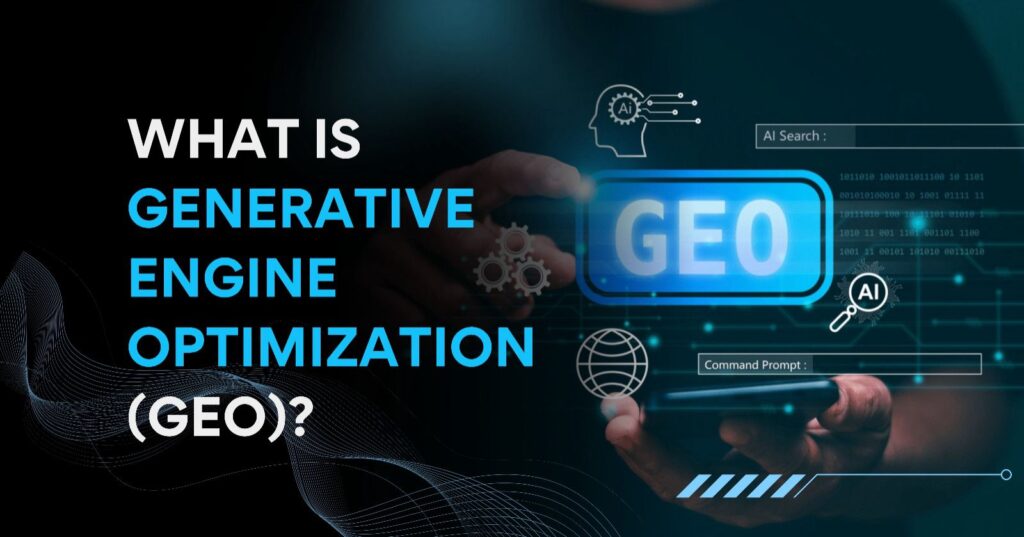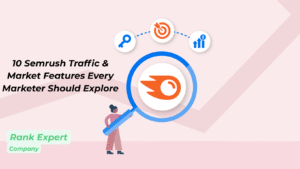Introduction: A Paradigm Shift in Search
The way people search online is undergoing a seismic shift. With the emergence of AI-powered platforms like Google Search Generative Experience (SGE), ChatGPT, Perplexity, and Claude, traditional SEO is no longer enough. Welcome to the era of Generative Engine Optimization (GEO).
GEO is not just another buzzword. It marks a foundational change in how content is discovered, summarized, and surfaced by AI-driven engines. Understanding and adapting to this new model is crucial for maintaining online visibility and digital authority.
What is Generative Engine Optimization?
Generative Engine Optimization (GEO) refers to the process of optimizing content for AI systems that generate answers rather than list blue links. Unlike conventional SEO, which aims to rank high in search engine results pages (SERPs), GEO focuses on ensuring your brand or content is cited, referenced, or included in AI-generated responses.
Why GEO Matters in 2025 and Beyond
Search behavior is changing:
- Zero-click searches are on the rise.
- Large language models (LLMs) like GPT-4 and Gemini are becoming gatekeepers of information.
- User expectations are leaning toward instant, conversational, and contextual answers.
In this environment, GEO helps you adapt by:
- Structuring content that’s easily extractable by AI.
- Building brand authority through verifiable sources.
- Enhancing your presence in AI-generated citations.
How Generative Engine Optimization Differs from Traditional SEO
| Factor | Traditional SEO | Generative Engine Optimization |
|---|---|---|
| Goal | Rank in SERPs | Get featured in AI-generated responses |
| Focus | Keywords, backlinks, meta tags | Contextual relevance, entity linking |
| Success Metric | Organic traffic, CTR | Citation frequency, brand mention in AI |
| Tools | Google Search Console, Ahrefs | Perplexity, SGE Insights, AI audit tools |
Key Strategies for GEO Success
- Focus on Topical Authority
- Publish comprehensive content clusters.
- Use semantic search techniques.
- Leverage latent semantic indexing (LSI) keywords.
- Answer Questions Concisely
- Use structured formats like FAQs.
- Include definitions, summaries, and how-tos.
- Incorporate Verified Sources and Citations
- Link to authoritative domains.
- Use schema markup to define credibility.
- Use Entity-Based SEO
- Build a knowledge graph around your brand.
- Connect your content to recognized topics and people.
- Optimize for Zero-Click Exposure
- Create snippet-worthy content.
- Add table, list, and bullet formats that AI prefers.
Tools to Support GEO Implementation
- Perplexity AI: Analyze how your content appears in generative engines.
- Google SGE Insights: Track visibility in experimental AI summaries.
- SurferSEO: Optimize for semantic relevance and NLP.
- Semrush & Ahrefs: Monitor backlinks and topical authority.
- ChatGPT Plugins & APIs: Check how AI interprets your content.
Real-World Examples: Brands Winning at GEO
- Forbes: Structured, data-backed content often cited in AI answers.
- Investopedia: Uses clear definitions and credible references.
- Wikipedia: Dominates AI due to structured format and verifiability.
- Challenges and Risks of GEO
- Lack of transparency in how generative engines choose citations.
- Potential loss of traffic due to AI summarizing answers.
- Increased need for brand defensibility and reputation management.
Future-Proofing Your Strategy
To stay ahead:
- Keep pace with evolving AI engine behaviors.
- Test your content visibility across different AI tools.
- Embrace content authenticity and E-E-A-T principles (Experience, Expertise, Authoritativeness, Trustworthiness).
Conclusion: GEO is the New SEO
As generative AI continues to redefine search, the marketers and publishers who adapt to Generative Engine Optimization will gain a decisive advantage. It’s not about replacing SEO—but evolving it.
In this new era of search, GEO is your roadmap to staying relevant, discoverable, and trusted.
FAQs About Generative Engine Optimization
Q1: Is GEO replacing traditional SEO?
No, GEO complements SEO by focusing on AI-generated search contexts.
Q2: How do I get my content cited by AI engines?
Use structured data, cite sources, and build topical authority.
Q3: What industries benefit most from GEO?
Finance, health, education, and news publishing benefit heavily from AI-generated citations.
For More Information Visit Our Homepage:



